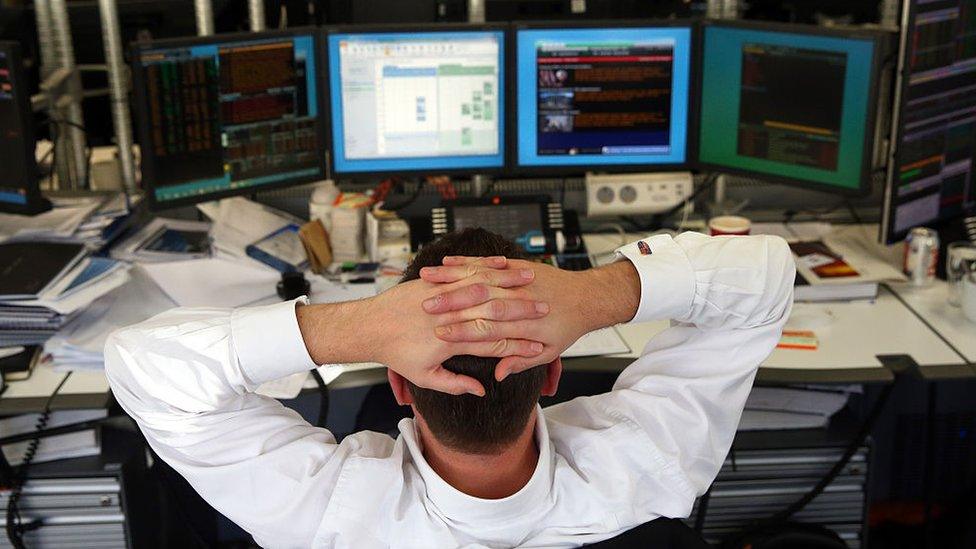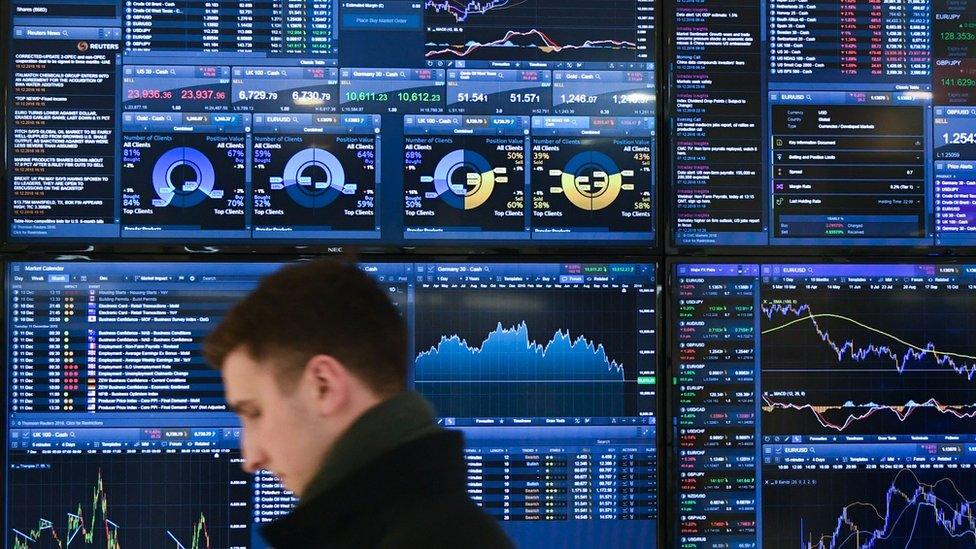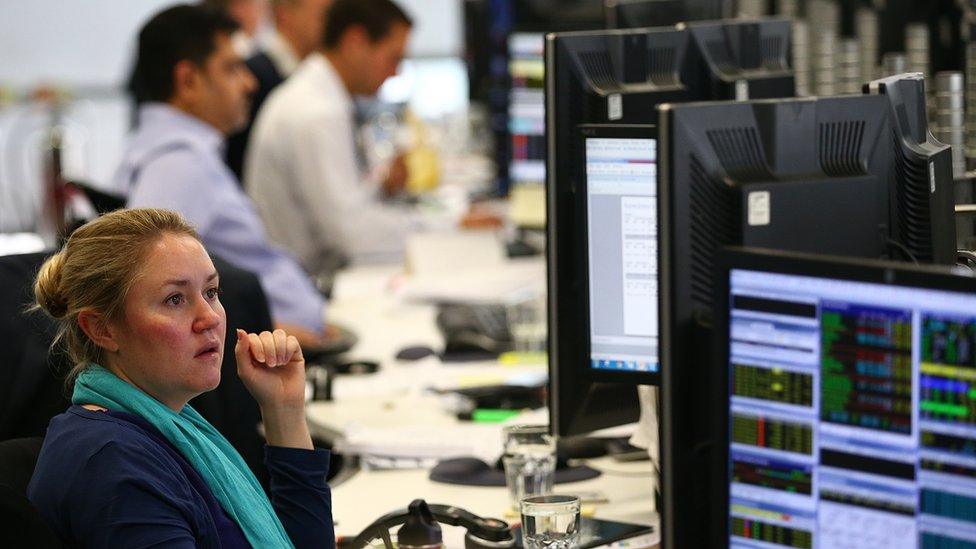The general election and the volatile pound
- Published
- comments

Election night could be a long one for financial market traders.
The most sensitive market to political events is almost always the value of the pound. And, given the political stakes could scarcely be higher, it could be very volatile as exit polls and results begin to come in.
Markets care A LOT about the outcome of the election, but why should we even discuss them - and what do we even mean when we say "markets"?
Markets is shorthand for the collective confidence that investors (individuals, pension funds, hedge funds) have in the financial prospects of a company, a country, a commodity, a currency, etc.
When it comes to politics, markets react to the effect they think political events will have on the economic prospects of the UK.
But markets are not always right.
Markets - and most economists - think Brexit is overall a bad thing for the UK economy because it makes doing business with our largest and closest trading partner, the EU, more difficult and more expensive. The harder the Brexit, the worse for the economy and the currency.
Markets also think Labour proposals - to nationalise industries, force big firms to hand over a tenth of the company to workers and government, plus a plan to borrow hundreds of billions of pounds - is bad for business confidence, the economy and the pound.
Also, markets don't like surprises.
Markets do matter because a fall in the pound tends to push up the cost of living, while falls in company share prices affect the value of pensions.
With these rough principles in mind, let's take a look at the potential market reaction to the most probable outcomes.
A Conservative majority: The pound goes up, but by how much and for how long depends on size of majority.

This is the outcome the markets are currently predicting. The value of the pound has risen significantly since the summer, rising from $1.19 to over $1.32 as the majority of polls have pointed to a Tory majority and a functioning government. That lead in the polls has also reduced the chance of an outright labour victory, a result markets dislike more than Brexit.
However, even if markets get the Tory majority they expect, it doesn't mean that markets will be calm. A great deal depends on the size of that majority.
A very small majority, some argue, would give hard line Brexiters more influence over negotiations with the EU and prevent the PM from extending the transition period, thereby increasing the likelihood of leaving the EU without a deal in December 2020 - an outcome that investors consider bad for the UK economy and consequently the value of the pound.
Others argue that the Tory party is a lot more stable than it was. Rebel MPs have been crushed and all have signed up to Johnson's deal in blood as the price of standing in the election. Whatever you think, it seems uncontroversial to say that the bigger the majority, the more short-term certainty for the direction of travel.
Based on soundings from foreign exchange traders a solid majority (say 25-plus) see pound rise a bit ($1.33). A big win could see it rise a bit more ($1.35-$1.40) while a slim majority or falling short altogether would potentially see a sharp fall in the pound back towards $1.20-$1.25.
A Labour-led coalition: Short term fall for pound but supported by potential path to reversing Brexit.
The process of assembling a coalition, choosing a leader, the possibility of a second referendum - with a potentially different result - would create uncertainty in the short term and stall business investment further. The pound would probably fall in value in the short term. However, markets have consistently delivered the message: the closer the UK is to the EU, the better for the economy - and therefore the pound might find some support after an initial dip.
A Labour Party in coalition with other parties would probably have to ditch some of the more radical proposals (mass nationalisations, etc) that the markets don't like. No radical overhaul of capitalism and a potential route to a softer or non-existent Brexit would probably create a bit of a short term shock, but it wouldn't lead to a bloodbath.
However, some say the price of the SNP joining a Labour-led coalition would be a promise for a second Scottish referendum. A possible fracture in the UK could add another whole level of uncertainty and political angst, which would offset any hopes for a softer Brexit.
An outright labour majority: The most radical overhaul of the way business and the economy is run in decades. Pound falls very sharply.
This would come as a big surprise to markets - and they hate those. It's not just the element of surprise - markets fear Labour's plans to nationalise large swathes of the economy and change the ownership of companies, etc, would spook investors.
Traders expect that would lead to a sharp fall in the pound and the price of shares in the companies they want to nationalise, which would hit savers and workers' pensions.
In summary, markets know they are not oracles but they don't react well to being wrong and can act with a violent jerk of the knee when that happens. The markets right now are balanced between fears and desires.
A desire for the certainty of a functioning government, while fearing both a hard Brexit on one side and a makeover of capitalism on the other.
- Published11 December 2019

- Published4 December 2019

